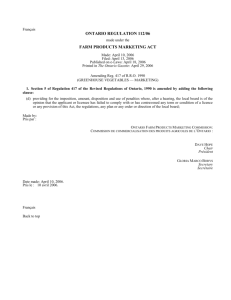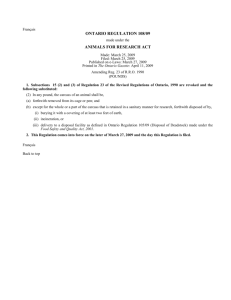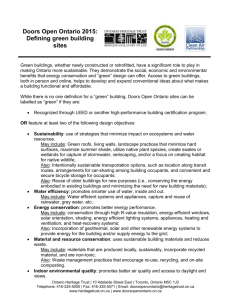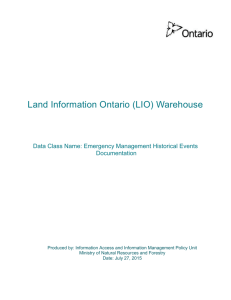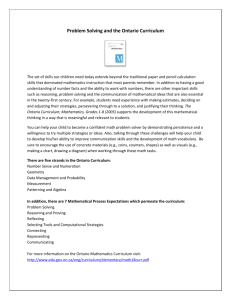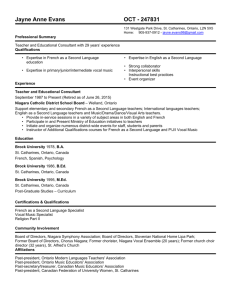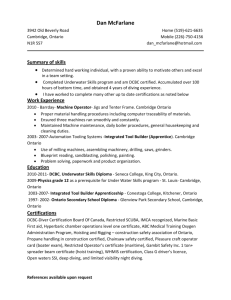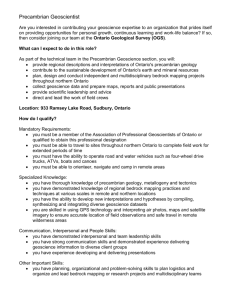Geologic History of (southern) Ontario
advertisement
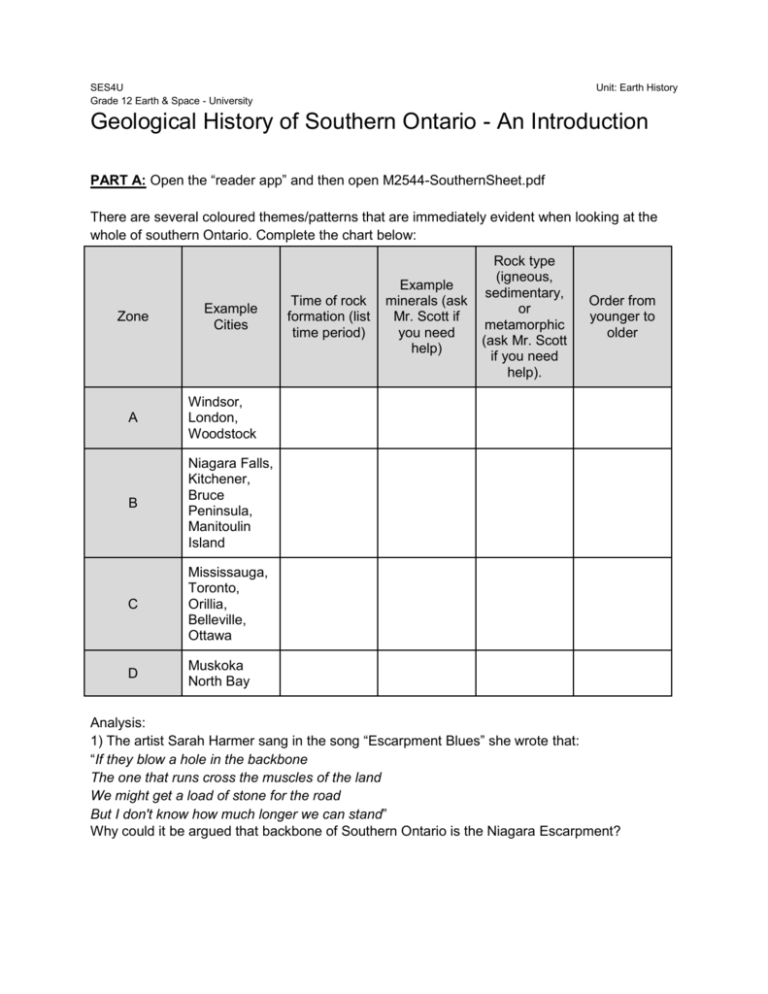
SES4U Grade 12 Earth & Space - University Unit: Earth History Geological History of Southern Ontario - An Introduction PART A: Open the “reader app” and then open M2544-SouthernSheet.pdf There are several coloured themes/patterns that are immediately evident when looking at the whole of southern Ontario. Complete the chart below: Zone Example Cities A Windsor, London, Woodstock B Niagara Falls, Kitchener, Bruce Peninsula, Manitoulin Island C Mississauga, Toronto, Orillia, Belleville, Ottawa D Muskoka North Bay Time of rock formation (list time period) Example minerals (ask Mr. Scott if you need help) Rock type (igneous, sedimentary, or metamorphic (ask Mr. Scott if you need help). Order from younger to older Analysis: 1) The artist Sarah Harmer sang in the song “Escarpment Blues” she wrote that: “If they blow a hole in the backbone The one that runs cross the muscles of the land We might get a load of stone for the road But I don't know how much longer we can stand” Why could it be argued that backbone of Southern Ontario is the Niagara Escarpment? SES4U Grade 12 Earth & Space - University Unit: Earth History 2) How is limestone formed? What does this indicate about the conditions of much of southern Ontario at the time that these layers of rock were formed? PART B: Now go to “M5504.pdf” This is a zoomed in view of the Muskoka region. Define: a) glaciofluvial (landform): b) glaciolacustrine (landform): c) morainal (landform): 1) There is a green area directly north of the town of Hunstville ( tsMG/R ) explain what this Lu-D code means. 2) Locate the Big East River, it is a blue colour. What does this mean that this area once was? 3) There are 9 mines located in the blue feature that surrounds much of the area. What material is mostly found in this area? What major industry/company exists in Muskoka that likely operates some of these mines? 4) Having performed this activity, what major natural phenomena is responsible for much of the geologic features of the region? SES4U Grade 12 Earth & Space - University Unit: Earth History PART C: After performing this activity you have had the opportunity to observe macro~ and micro~ detailed views of selected areas of Ontario. Write one paragraph to explain how the rock types and topography of regions in Ontario have changed over time and are not static. After performing this activity, what are you wanting to investigate more or would want to visit to enrich your understanding/comprehension.
